
70% of organizations reported an increase in the number of applicants for their job postings. Additionally, 65% of those organizations found that including pay ranges made them more competitive in the labor market.
This data alone highlights the growing significance of pay transparency in attracting top talent for your organization in light of such findings, and to adjust to today’s world- Washington D.C. preparing to implement DC Act 25-367 which was signed on January 12, 2024, amending the Wage Transparency Act of 2014.
This new amendment prepares organizations to include salary ranges in job postings, and barring inquiries into an applicant's salary history. HR leaders must adapt their strategies to ensure compliance while leveraging this shift to enhance recruitment and employee engagement efforts. In this article, we’ll uncover the key details, benefits, and potential challenges regarding the recent changes.
Pay transparency can be defined as the practice of openly sharing new information regarding employee compensation. This could include salaries, detailed benefits descriptions, and sometimes the criteria or processes behind these decisions.
These laws include detailed breakdowns of the compensation plan for employees and the general salary bands offered for their job roles.
Washington, D.C.’s pay transparency amendment aims to ensure equitable hiring practices and standardize access to salary information.
The key provisions are as follows:
Complete disclosure - Employers are now required to include the minimum/maximum salary or hourly wage on all job postings and - Employers are now required to include the minimum/maximum salary or hourly rates on all job postings and mention the availability of healthcare benefits to potential and current employees.
Protection of compensation information - Employers can not prevent employees from discussing wage history with others or taking any action on the employees who do so. The amendment replaces the term “wages” with “compensation,” which is broadly defined as “all forms of monetary and nonmonetary benefits an employer provides or promises to provide an employee in exchange for the employee’s services to the employer.” As a result, these protections now extend to employee discussions of both monetary and nonmonetary benefits.
Ban on inquiries on wage history - Employers will no longer be allowed to judge candidates based on their previous salaries or inquire about the same. Moreover, employers will be barred from asking prior or previous employers for a candidate's wage history. Notably, "wage history" is defined as information "related to a compensation an employee has received from other or previous employment".
Definition of Compensation - Compensation has now been defined as any or all the benefits (monetary or nonmonetary benefit or any healthcare benefit) that are to be granted to the employee in exchange for his services.
Redefined Employer - Employer is redefined as any person, firm, or corporation employing 1 employee in DC, except the DC or the Federal Government.
Notice to Employees - All employers are mandated to provide a notice in the workplace to all employees, indicating rights. This notice must be placed at a place of significance or near where the employee usually huddles around.
Enforcement and penalties - The Attorney General will oversee the enforcement of the Act and may pursue civil actions against employers or seek remedies for individuals or the public. Violations may lead to civil fines or administrative penalties, imposed by the mayor: $1,000 for the first offense, $5,000 for the second, and $20,000 for each subsequent violation. The law does not allow individuals to file private lawsuits.
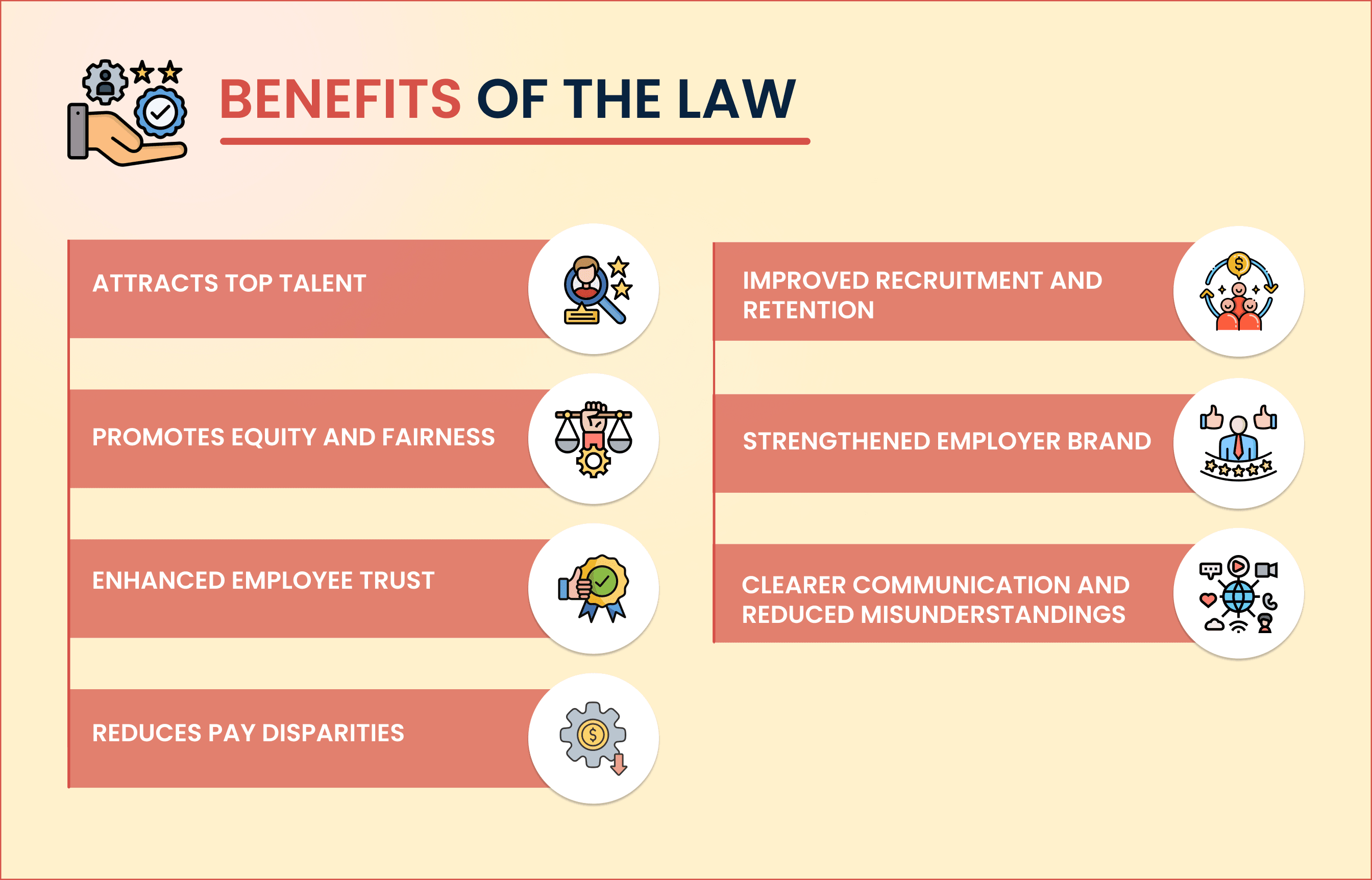
Washington D.C.’s pay transparency amendment brings multiple advantages for both employers and employees, ensuring fairness, accountability, and competitiveness in the labor market.
Including salary ranges in job postings is directly proportional to an increase in the number of job applicants. According to SHRM, 70% of organizations that listed pay ranges saw a rise in applicants, and 65% found that it made them more competitive in the market.
Because of the new laws being in place, employers would now be encouraged to evaluate an employee without bias. The new transparency requirements help eliminate discrepancies rooted in past salaries.
Plenty reports prove- when employees know that competition is based on fair and consistent criteria, they are more likely to feel valued and respected in the organization. The disclosure of benefit information further helps this matter.
The act ensures that employers cannot make current salary decisions based on the employee’s previous salary or even enquire applicants about salary history. With such laws inclined towards pay transparency, employees are more likely to receive compensation based on their skills and experience, and the role itself. This also helps effectively deal with any or all sorts of historical wage gaps.
Companies that embrace these transparency obligations are seen as more forward-thinking and employee-focused. This can enhance both recruitment and retention efforts by appealing to candidates who prioritize fairness and clarity in compensation.
Employers who commit to fair pay practices and transparency position themselves as leaders in workplace equity. This can significantly improve your employer brand, making your organization a more attractive place to work, especially for top-tier talent.
By explicitly listing salary ranges and benefits during interviews, employers reduce the likelihood of misunderstandings between employees and employers. This clarity leads to more efficient hiring processes and less friction during negotiations.
This law offers significant benefits that not only enhance recruitment postings and retention efforts but also contribute to creating a more fair and inclusive work environment. Embracing these changes will help organizations stay competitive while fostering trust and equality among employees.
The amendment leaves several open questions, including:
Whether it applies to remote positions, including positions that could be filled in DC, or by an employee working completely remotely outside of DC for a DC employer.
Whether the salary range requirement applies to “job listings” and “position descriptions” posted by recruiting agencies or other third parties.
The Act requires employers to include a compensation range for each job in public listings, ensuring transparency about compensation expectations from the start. Employers must provide the range based on what they consider fair compensation at the time of posting.
The DC Wage Payment and Wage Collection Law mandates that employers pay their employees at least twice a month on scheduled paydays. Employers must pay all earned and promised wages, and any required salary ranges due must be paid promptly upon the termination of employment. This ensures timely and fair compensation for employees in Washington, D.C. More about the full law here.
The Washington D.C. Human Rights Act prohibits pay discrimination based on protected characteristics and mandates equal pay for employees performing similar work, regardless of gender or other protected traits.
Pay transparency laws are becoming increasingly important as organizations work to create more equitable workplaces. These laws mandate that employers disclose compensation details, ensuring fair and transparent pay practices, and even helping prevent potential violations.
CompUp simplifies this process while promoting a fair workplace by offering the following benefits:
Comprehensive pay gap analysis: CompUp has a powerful dashboard to analyze pay gaps across demographics and provide actionable insights to close the differences and promote pay equity.
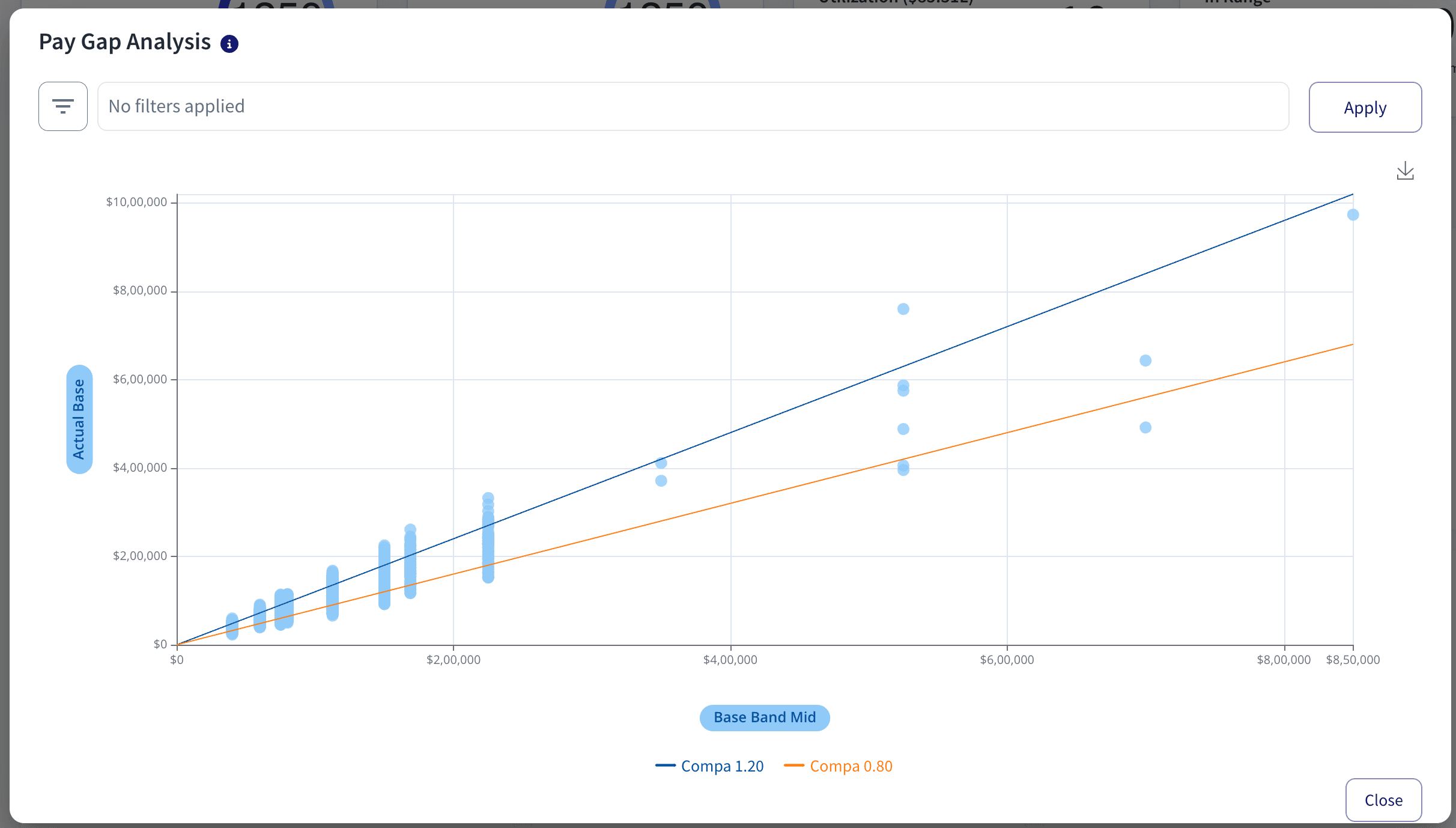
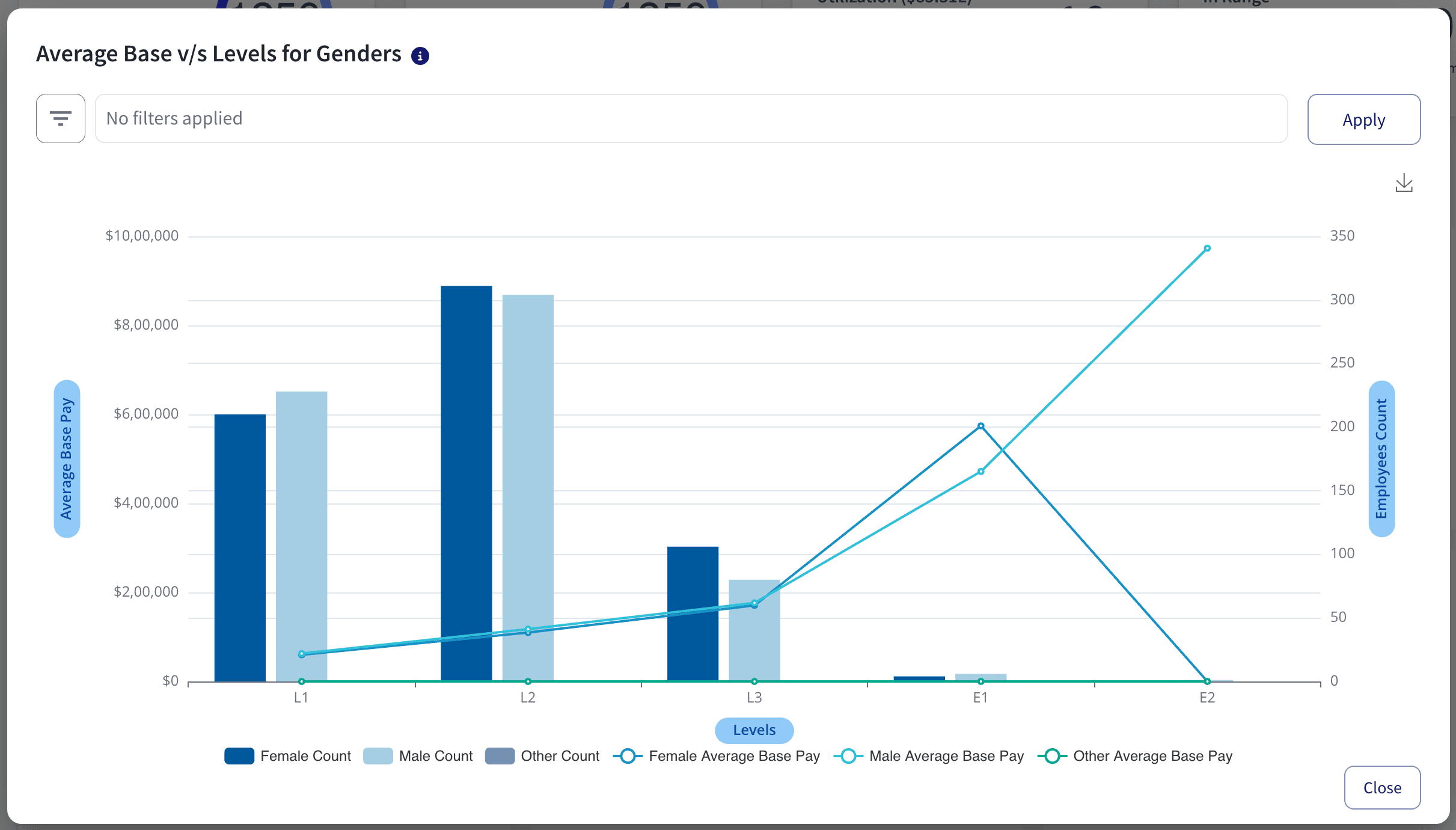
Increased pay visibility: Provides clear communication about pay structures, so all employees clearly understand how their pay is decided and how it links to the organization's goals.
Peer comparison features: CompUp provides transparency so that an employee can compare their pay directly with others, leading to fairness and a culture of openness.
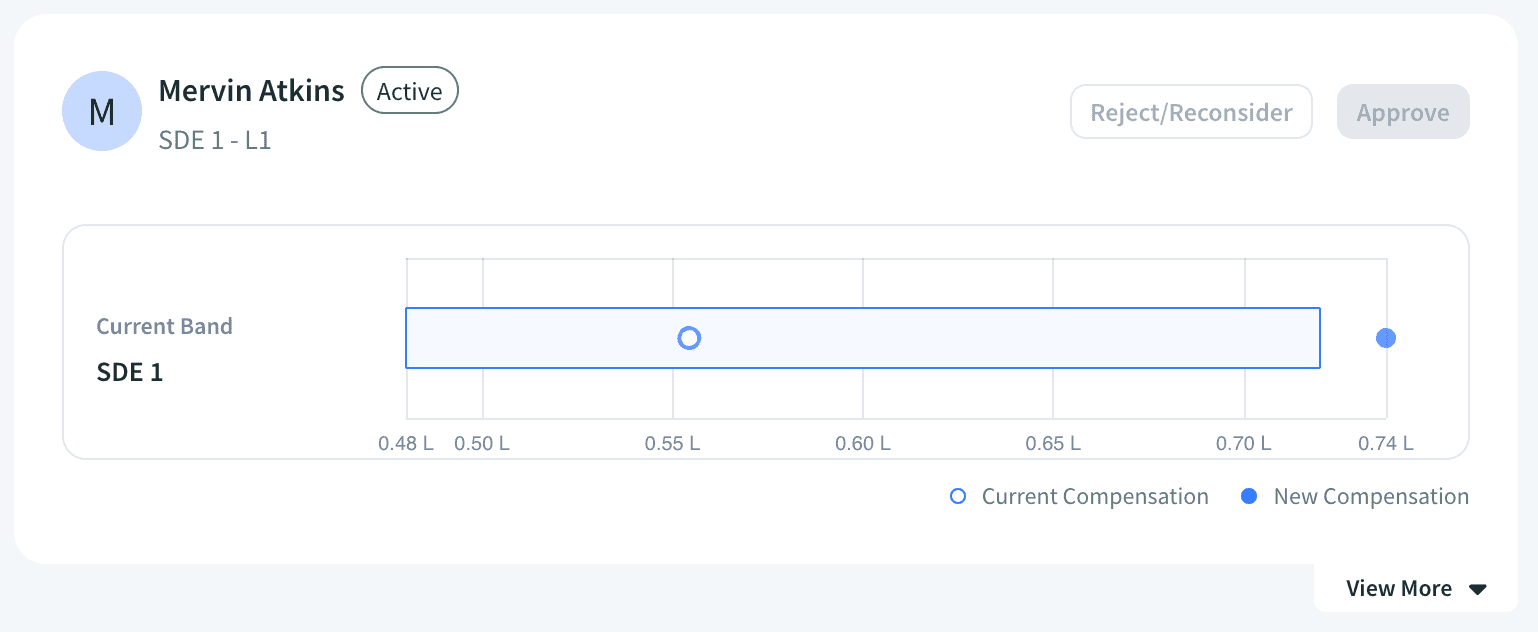
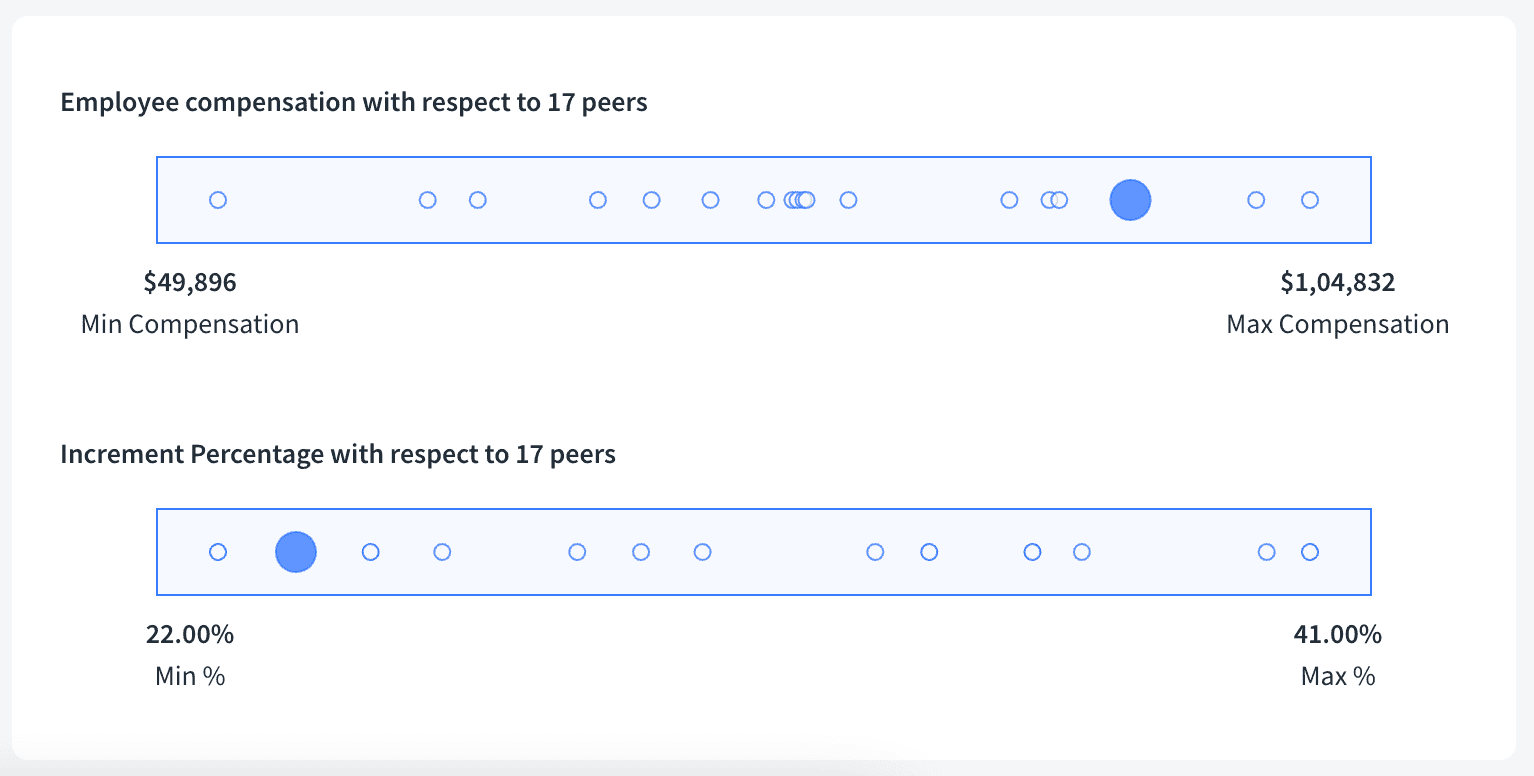
Data-driven insights for decision-making: CompUp optimizes pay decision-making based on real-time and market data and guided analytics that establish the criteria of the pay structure by maintaining a healthy competitive balance, equity, and alignment with business objectives.
By using CompUp, companies can effectively make transparency a reality and build increased trust from employees while creating a reputation for being an employer who treats one and all fairly.
As pay transparency has been becoming the cornerstone of fair workplaces, Washington D.C.'s recent amendment reflects the increasing momentum toward accountability and fairness in compensation. Mandating salary disclosures, barring wage history inquiries, and redefining compensation protections level the playing field and enhance trust and competitiveness.
Compliance will be part of the agenda for HR leaders and organizations as they look to leverage changes that attract, engage, and retain top talent. These tools will help organizations take the shifts in stride, increasing transparency while driving fairness and inclusion.
It is not just a legal requirement but an opportunity to position your organization as the leader in workplace equity, trust, and innovation. Take on the future of pay practices and let transparency pave the way to sustainable success.

Revolutionizing Pay Strategies: Don't Miss Our Latest Blogs on Compensation Benchmarking